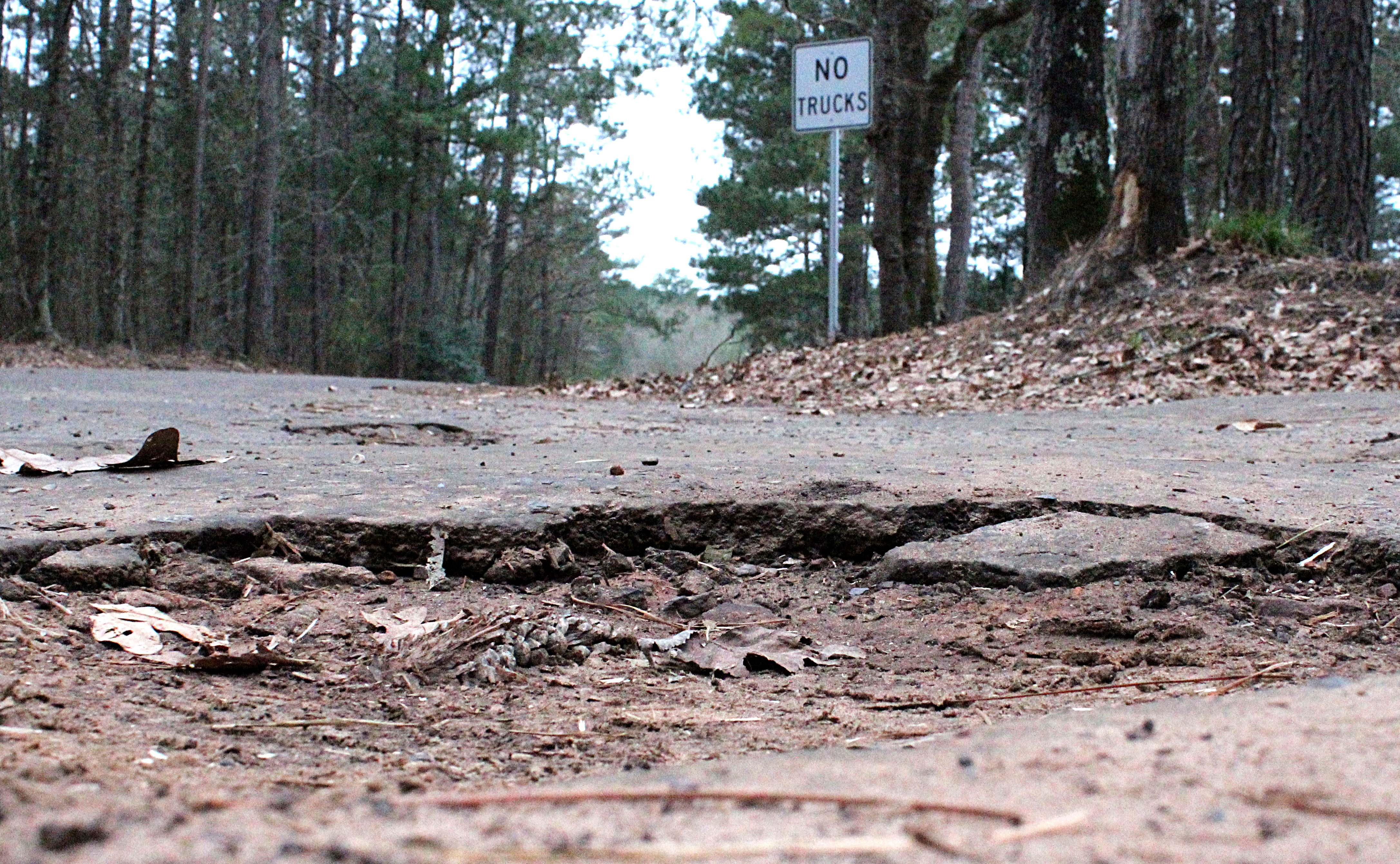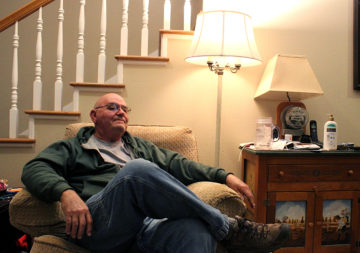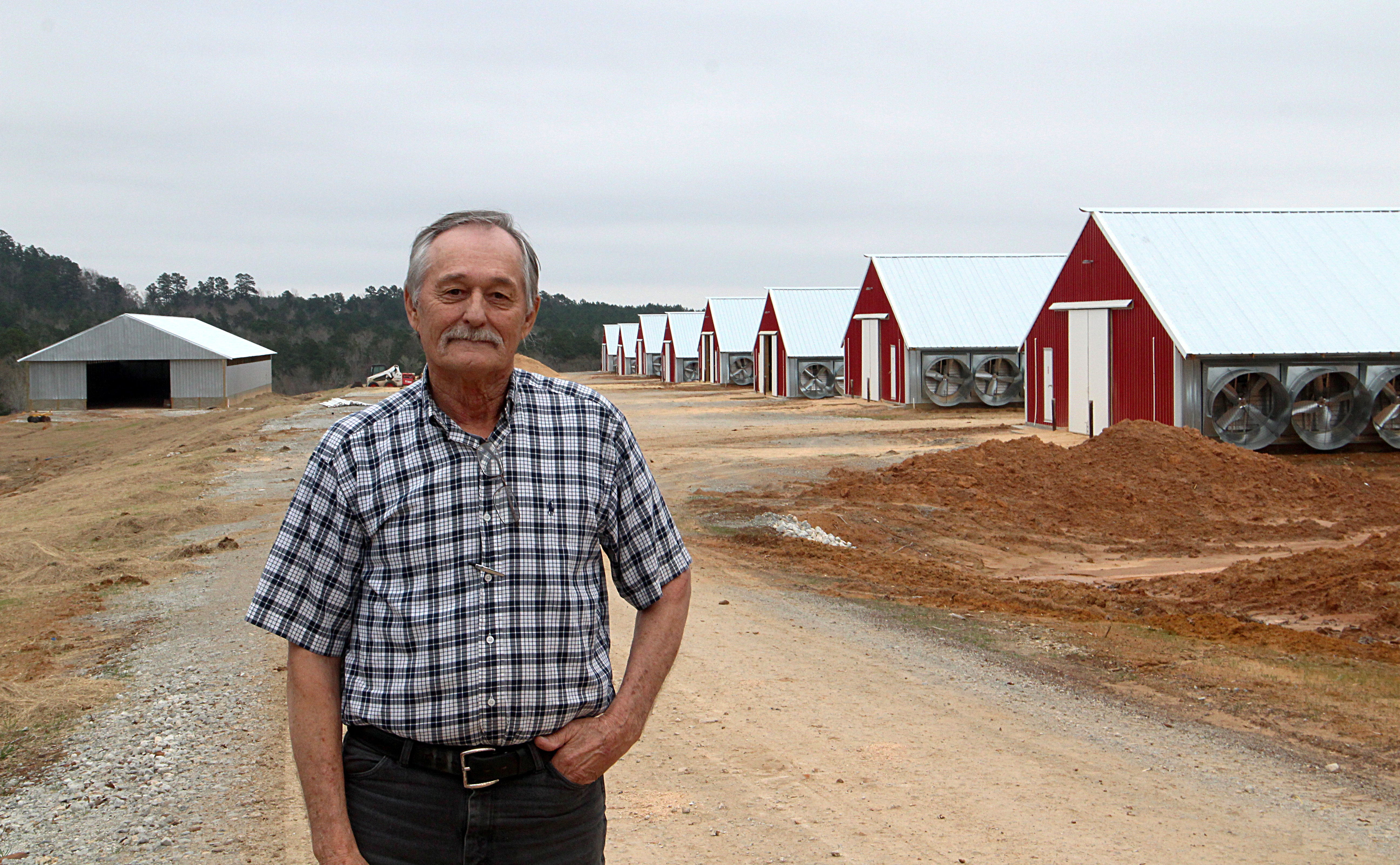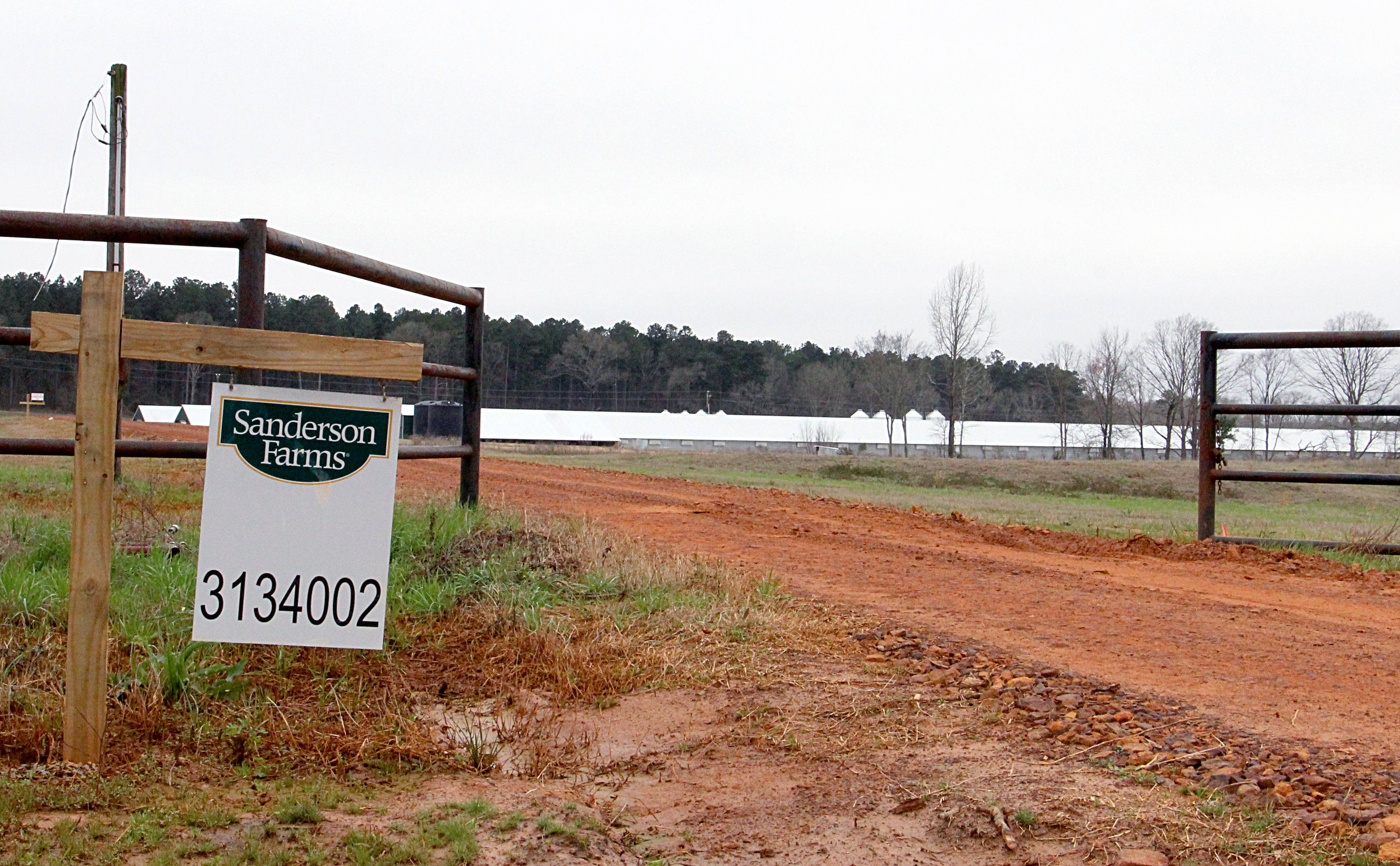
New Chicken Farms are Ruining Roads and Fowling the Air in Upshur County
As industrial chicken farming expands to East Texas, local residents say they’ve been bombarded with the waste of hundreds of thousands of birds, an “overpowering” stench and heavy truck traffic.

It took a decade for Ronnie Blundell to find the perfect plot of land where he could build his dream home in rural Upshur County, a community of 40,000 about 140 miles east of Dallas. The now-71-year-old and his wife decided to construct the two-story house in a deserted stand of pines near Ore City — they drove 30 minutes from Longview on weekends and worked on the project “daylight to dark” until it was finished. “We wanted a place where we could bring the kids and they could shoot BB guns or whatever, just get out of town,” Blundell said. The home was so perfect that when the Blundells started living there full time in the 1990s, Ronnie said that he’d never live anywhere else. “I told everybody, ‘I’m gonna move one more time, and that’s gonna be in a body bag, to Longview, to a [burial] plot I’ve already paid for.’”

But Blundell is no longer living in rural splendor. In March, he told me that his newest neighbors — several contract farmers who raise chickens less than a mile away for Sanderson Farms — have fouled the air with the odor of chicken manure and are tearing up the country roads with big rig traffic. Since the poultry giant expanded into the area in 2017 this community is now home to more than two dozen chicken houses — roofed sheet-metal structures that stretch two football fields long and can hold up to 46,000 birds each.
“You work for years to buy the land and build a home with the hope that you live long enough to retire to the county where you were born; that dream kind of gets shot out of the sky with the smell of chicken manure,” Blundell said. The waste produced at chicken CAFOs (concentrated animal feeding operations) can also release gases that are harmful to human health, such as methane, ammonia and hydrogen sulfide.
Other residents share Blundell’s frustration. Jerry Krotz, a retired military veteran from Wyoming, bought two plots of land just up the road from Blundell 15 years ago, eventually moving there with his daughter. Now, an industrial farm with tens of thousands of chickens is about a quarter-mile away. “There’s more days than I’d like to count when you’re driving that you just have to roll up the windows. It’s horrid,” said Natasha Garrett, Jerry’s daughter. One of their neighbors, Cynthia Porter, moved here from New York a few years ago and paid $100,000 to build a small farm — they raise sheep and have started renting some of the space as a wedding venue. Porter worries that the wafting odor of chicken waste could spoil someone’s special day, making her venue undesirable for couples.

Sanderson Farms, a company that clears $3.2 billion in annual revenue, announced in 2017 that it would expand its reach into rural East Texas. After securing incentives from local governments, the company moved forward with its plan to build a hatchery in Lindale and a processing plant in Tyler. Sanderson Farms said it would contract with growers in a five-county region to erect 80 new chicken farms that would send a total of 1.5 million broiler chickens a week for processing. In the past, such factory farms have been criticized for contaminating the air, polluting local water sources, exploiting contractors and subjecting animals to cruel conditions.
In Rains County, an hour west of Upshur, the news of expanded chicken-raising operations dismayed one group of residents, so they banded together to defeat plans for a chicken farm in their neighborhood. Among their concerns, they said, was the inevitable wear and tear on their narrow gravel roads and the feces-laden air. Stella Larson, a member of the group, said she was worried about contaminants from feces and carcasses leaching into surface and groundwater, along with feathers and dust being swept up into the air and onto her property.
Now it appears as if some of those fears are being realized in Upshur County — specifically the sometimes “overpowering” stench and truck traffic that’s run at least one motorist off the road and created massive potholes on the rarely maintained streets. Like Larson, Krotz said he’s also concerned about contaminants from the chicken houses trickling down into local water supplies.
“You work for years to buy the land and build a home with the hope that you live long enough to retire to the county where you were born; that dream kind of gets shot out of the sky with the smell of chicken manure.”
Molly Christensen, a spokesperson for the Texas State Soil and Water Conservation Board, which holds partial regulatory power over commercial chicken houses, said there’s little chance of the operations contaminating Upshur County water. The barns where the chickens live are roofed and have compacted clay floors, said Christensen. When the barns are scraped of “litter” (that is, excrement, feathers and used bedding), it must be stored in a way to prevent runoff into bodies of water.
Christensen said that chicken farmers must agree to water quality management plans with the state conservation board; the plans lay out what each facility must do to prevent pollution. But a pro-business state law passed in 1997 requires that the agency keep such plans secret.
Both the state conservation board and the Texas Commission on Environmental Quality (TCEQ) investigate the hundreds of complaints of “nuisance odors” generated by chicken farms. Krotz said he filed a complaint with TCEQ in March, but by the time investigators arrived at his property, the smell had temporarily dissipated. TCEQ data provided to the Observer shows that Upshur County residents have filed about 75 odor complaints regarding chicken houses since 2000. Two of them appear to be in connection to the new Sanderson operations.

Sanderson Farms did not respond to a request for comment for this story. But in a 2017 Palestine Herald-Press article about pervasive odors in nearby Anderson County, a company spokesperson passed the buck to the contracted farmers. “The litter belongs to the grower,” the spokesperson said.
In Upshur County, the residents I interviewed said they’ve brought their qualms to Sanderson’s attention, but to no avail. Last year, at a meeting inside the hatchery in Lindale, Krotz and Porter’s concerns about water contamination were brushed off, they said. Blundell had a two-hour meeting with growers and company reps in his driveway late last year; to allay his concerns about truck traffic, they suggested Blundell give them an easement through his own property to build a new road. Blundell said they could work out a deal if the company paid for the easement. He hasn’t heard much from them since.
“They haven’t shown up with their pocketbook yet,” Blundell said.


